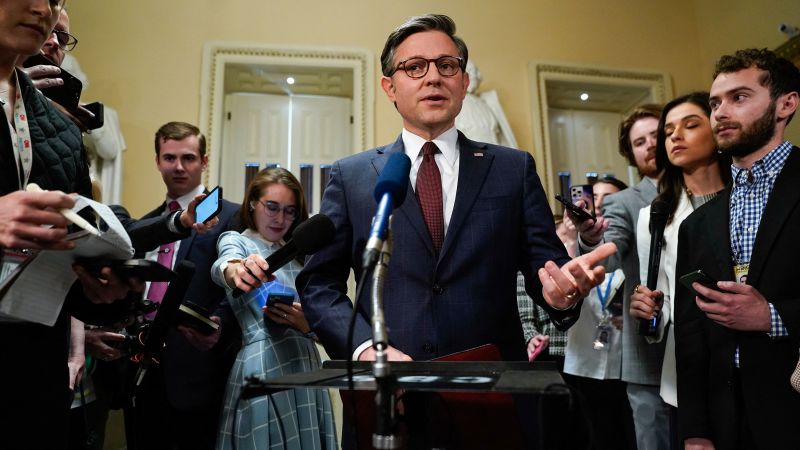Republican Speaker Mike Johnson demonstrated political courage and legislative skill by pushing a $60 billion aid bill for Ukraine through the House of Representatives. He put his own job in jeopardy to support a democratic nation under attack by Russia, showing a willingness to stand up for America’s leadership and values. This move highlighted a political evolution that saw Johnson shift from the “America First” faction to the internationalist wing of his party, risking backlash from his more populist colleagues. Johnson emphasized the importance of US support for Ukraine in preventing further Russian aggression and maintaining American leadership on the global stage.
Johnson’s efforts in passing the aid bill were met with opposition from within his own party and challenges from members such as Marjorie Taylor Greene, who labeled him a “lame duck” for funding foreign wars. The passing of the Ukraine bill also exposed divisions within the Republican Party, with Trump’s influence and hardline immigration policies adding to the turmoil. Despite facing criticism and threats of ousting, Johnson stood firm in his support for Ukraine and America’s international responsibilities, which may have alienated some of his more conservative colleagues. This decision showcased Johnson’s commitment to doing what he believed was right, even if it went against the prevailing sentiment within his party.
The passing of the Ukraine aid bill was a significant moment that could impact Johnson’s future as speaker, especially with pressure mounting from populist Republicans and critics within his party. Johnson’s willingness to work across the aisle and prioritize national security and foreign policy goals over partisan politics may have long-term repercussions for his leadership position. The outcome of this internal party struggle may influence the GOP’s direction and approach to international relations in the coming months and years. Despite the challenges he faces, Johnson’s actions in supporting Ukraine and other vital US interests show a commitment to upholding American values and protecting democracy worldwide.
The debate over US support for Ukraine and Johnson’s leadership decisions drew praise and criticism from both sides of the political spectrum. Democrats largely supported Johnson’s efforts, recognizing the importance of the aid bill and his willingness to take a stand on critical national security issues. However, internal divisions within the Republican Party and challenges from figures like Greene highlighted the ongoing struggle for party unity and leadership. Johnson’s ability to navigate these challenges while upholding his principles may determine his future as speaker and his party’s approach to foreign policy and international relations.
Despite the controversy and political risks involved, Johnson’s handling of the Ukraine aid bill demonstrated a commitment to doing the right thing, even in the face of opposition from his own party. His willingness to prioritize national security and America’s role as a global leader showed a level of leadership and determination that may have lasting implications for his political career. As the GOP grapples with internal divisions and questions over its approach to foreign policy, Johnson’s actions may set a precedent for future leaders and decisions within the party. The outcome of this internal struggle could shape the Republican Party’s direction and influence its stance on key foreign policy issues in the years to come.
In a US political landscape marked by polarization and division, Johnson’s actions in passing the Ukraine aid bill stood out as a rare example of bipartisanship and political courage. Despite facing challenges and criticism from within his party, Johnson remained committed to supporting Ukraine and advancing important national security goals. His ability to navigate internal party dynamics and prioritize America’s role on the global stage showcased a level of leadership that may have far-reaching implications. The aftermath of this contentious debate over Ukraine aid and Johnson’s leadership style may offer insights into the future of the Republican Party and its approach to key foreign policy issues in an increasingly complex global environment.


